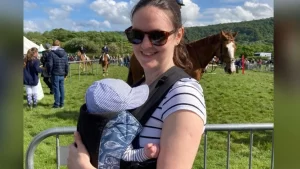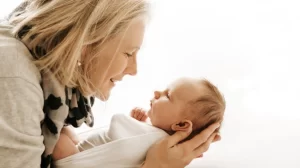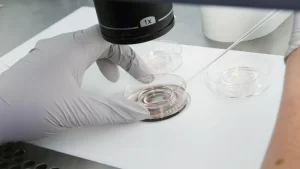
SOPHIE 46: “YOU REALISE YOUR CLOCK’S TICKING…”
Over the past decade, the number of single women undergoing IVF or artificial insemination in the UK has more than tripled, surging from 1,400 in 2012 to 4,800 in 2022, according to the UK’s fertility regulator. This growing trend reflects shifting societal attitudes and the increasing agency of women in choosing solo parenthood amidst financial and systemic challenges.
Women like Gina, Sophie, and Michelle exemplify this shift, each carving a unique path to motherhood. Gina, a mental health nurse, took control of her fertility in her mid-30s after a favorable assessment. Choosing intrauterine insemination (IUI) with donor sperm, she embraced the journey alone, supported by her family. “Doing it on my own terms suited me,” she explained, celebrating her decision to prioritize her desire for children over traditional relationship timelines.


Michelle, after ending a long-term relationship at 38, opted to prioritize children over dating.
Michelle, 42: ‘Children are time-limited, romance isn’t’
She highlights the time-sensitive nature of motherhood. Through IUI, she became a mother of two, cherishing the autonomy in shaping her children’s upbringing despite the inevitable challenges of single parenthood.
What are the Barriers?
However, the journey to solo motherhood is not without barriers. Financial costs are significant, with IUI and IVF treatments often excluded from public healthcare support. In the UK, funding policies vary widely. In England, women must pay for six IUI cycles before qualifying for NHS-funded IVF, while Scotland offers no funding for single women.

Despite these hurdles, societal acceptance of single parenthood has grown, and many women are taking proactive steps to fulfill their dreams of motherhood. Dr. Catherine Hill of Fertility Network UK notes, “Stigma around single mums has lessened, but now policy needs to catch up.”
As women increasingly opt for artificial insemination and IVF, they challenge traditional family structures, proving that the path to parenthood is as diverse as the women undertaking it. With evolving societal norms and policy shifts, the future of motherhood is being reshaped, one empowered decision at a time.

